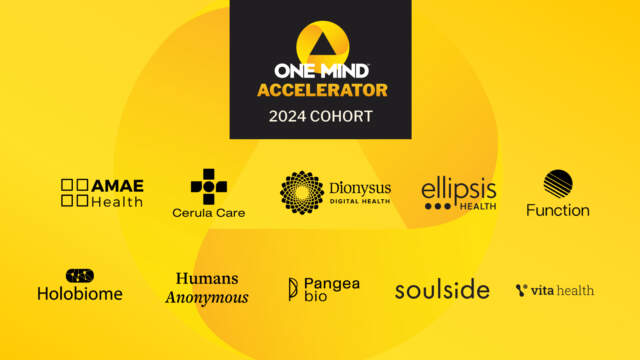Ian Maze, PhD
Associate Professor, Departments of Neuroscience and Pharmacological Sciences at Icahn School of Medicine at Mount Sinai
2017 Rising Star Early Diagnostics Basic Research Award
Major Depressive Disorder (MDD) afflicts over 300 million people worldwide, but current antidepressant medications work to relieve symptoms in only a fraction of these individuals, often only after weeks to months of treatment. What if a simple blood test could be developed that could not only indicate whether a person would respond favorably to medications, but could also reveal someone’s individual level of vulnerability to MDD under stress before it begins? Such a test could promote proactive lifestyle changes to help at-risk people ward off MDD, while potentially saving newly-diagnosed patients’ months of trying different medications in favor of alternative treatments.
Recent research from Dr. Ian Maze, a 2017 Rising Star Early Diagnostics Basic Research Awardee, suggests that a protein called histone H3 serotonylation (H3K4me3Q5ser) may be the key to developing such a blood test. To further investigate its potential as a blood biomarker for predicting depression vulnerability, Dr. Maze and his team used a rodent model of depression, called chronic social defeat stress (CSDS) that repeatedly exposes a cohort of mice to a larger, more aggressive mouse. The resulting social stress can serve as a trigger for some of the mice (noted as “susceptible”) to develop depressive-like symptoms. By testing blood levels of H3K4me3Q5ser in these mice before, within, and after a period of repeated CSDS sessions and by correlating these levels at each time point with the evolution of the mice’s depressive-like behaviors, Dr. Maze’s research has revealed that changes in H3K4me3Q5ser expression both precede and follow changes in behavior as hypothesized. This data provides important support for the potential of a blood test to predict the development of depression-like behavior, and provides a foundation for clinical studies in the future.
In their second aim, Dr. Maze and his team used a similar process to evaluate whether measuring H3Q5ser levels in blood can be used to predict responses to antidepressant treatments. By measuring blood levels of H3K4me3Q5ser before, during, and after treatment with antidepressant medications, dr. Maze observed that the changes in this protein’s expression follow ameliorations in the animals’ behavior, thereby suggesting that the H3K4me3Q5ser measurement might also help to predict antidepressant efficacy.
Most recently, Dr. Maze and his team are now tracking H3K4me3Q5ser blood levels in humans. Through a collaboration with Mount Sinai’s Affective Disorders Clinic, healthy controls, untreated MDD patients, and MDD patients taking antidepressants are all undergoing blood tests regularly, each over a span of a few months. The treated MDD patients are being assessed for changes in symptoms and compared to changes in H3Q5ser expression levels. These tests and analysis will inform the design of larger studies in the future to develop a clinically useful biomarker for depression.
In summary, Dr. Mazes research sheds invaluable light on the relationship between H3K4me3Q5ser expression, the presence/absence of MDD, and efficacy of medications for individual patients. They also represent the first step towards obtaining future follow-on funding that would allow Dr. Maze and his team to repeat these experiments with a much larger cohort needed for endorsement by the FDA.
In addition to the $250,000 Dr. Maze received through his One Mind Rising Star Award, he also has received three grants from the National Institutes of Health to continue and expand his research on the genetic and molecular underpinnings of depression and other brain disorders.
One Mind is strongly supportive of this important research and are enthusiastic about the potential to improve the early identification and treatments for MDD. We gratefully acknowledge the donors for making this research possible. To learn more about Dr. Maze’s research, please watch the presentation he gave at our 2017 Music Festival for Brain Health as well as the October 2018 Brain Waves interview he participated in.








